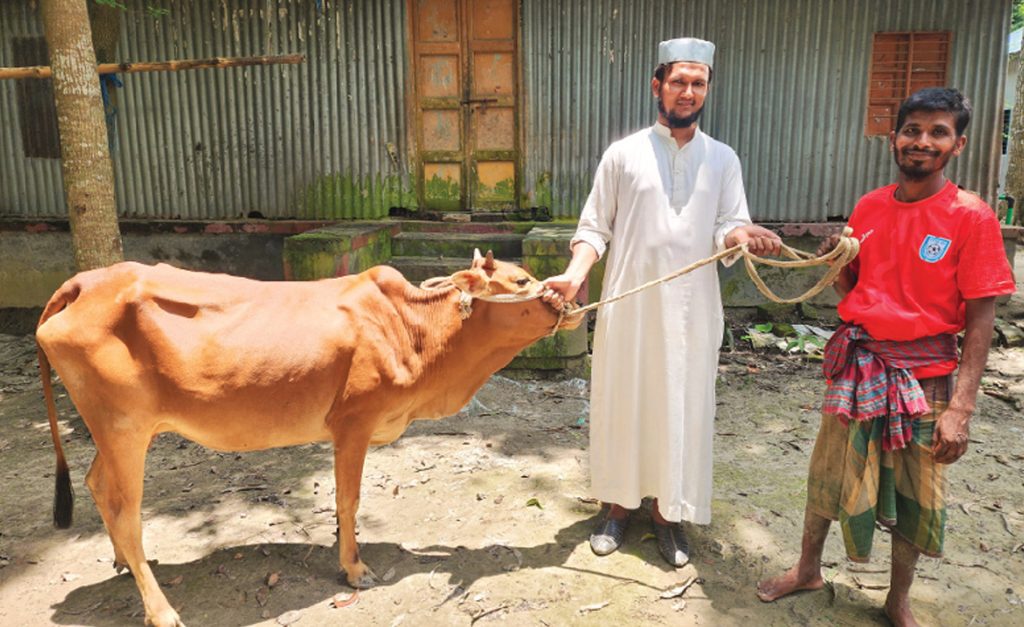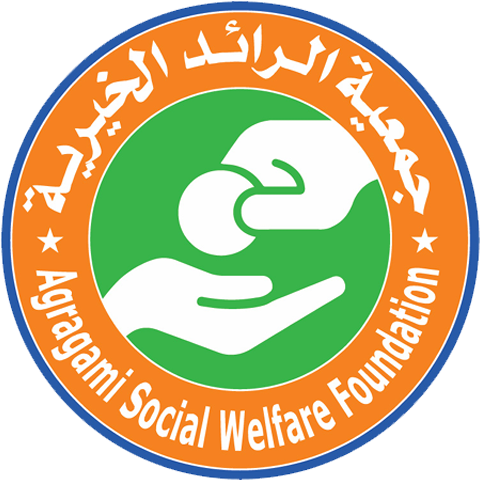The distribution of cows is an important part of our Livelihood Improvement Program, which aims to provide poor and marginalized families, particularly in rural or underdeveloped areas, with the means to achieve self-reliance. A cow is not just an asset; it serves as a source of both milk and potential income from selling milk or other dairy products. By giving these families the opportunity to raise a cow, we enable them to improve their nutrition and enhance their economic standing. The milk produced can be used for family consumption, while the surplus can be sold to generate income. Additionally, cows can be a source of fertilizer for farming, contributing to agricultural productivity. This initiative helps break the cycle of poverty by providing families with a sustainable source of food and income.

Distribution of Goats Among Poor Families:
Goats are versatile, easy-to-care-for animals that provide valuable resources, such as milk, meat, and wool. By distributing goats, we empower vulnerable families—especially women-headed households, widows, and landless laborers—to improve their livelihoods. Goats reproduce relatively quickly and can be sold for meat or kept for their milk. The sale of goat products creates an ongoing income stream that supports the family’s basic needs. Goats also contribute to food security by providing protein-rich milk and meat, which are often scarce in impoverished communities. This initiative not only aids in poverty reduction but also promotes sustainable farming practices by encouraging small-scale animal husbandry as a long-term livelihood option.
Distribution of Poultry Among Poor Families:
Poultry, including hens and ducks, plays a significant role in providing nutritious food and a stable income source for poor families. By distributing poultry, we encourage families to start small-scale poultry farming, which can become a valuable income-generating activity. Eggs and meat from poultry can significantly improve the nutritional quality of the family’s diet, while also being sold for additional income. Poultry farming is particularly beneficial because it requires less space, minimal investment, and can be easily integrated into existing farming systems. This program helps promote food security and empowers families, especially women and vulnerable groups, to manage their own small-scale business and improve their overall economic well-being.
